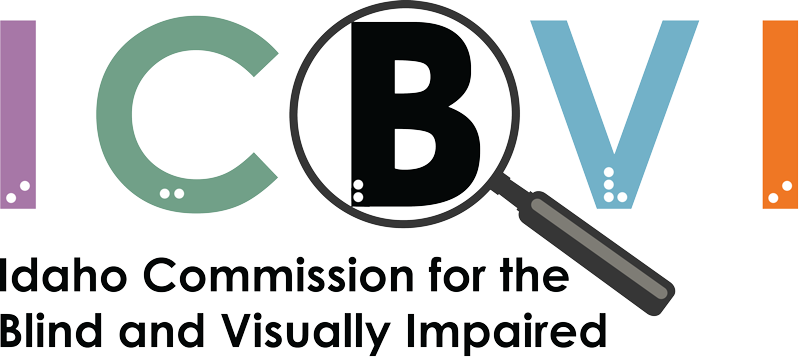In 1936, Congress enacted the Randolph-Sheppard Act with the intention of providing remunerative employment and economic enhancement opportunities to people who are blind through the operation of vending facilities on federal properties. Since then, the program has expanded to nearly every state and includes cafeterias, micro markets, and other food service-based businesses in a variety of facility types.
The Idaho Commission for the Blind and Visually Impaired (ICBVI), designated as the State Licensing Agency (SLA), is tasked with administering the Randolph-Sheppard Vending Facility Program, also referred to as Business Enterprise Program, across the Gem State. The BE Program in Idaho grew from two facilities in 1970 to 22 facilities in 1998. Now, in 2024, we proudly provide service to 105 vending facilities, five micro markets, and four cafeterias.
Being a Licensed Vendor
The SLA is responsible for identifying facilities, developing accounts, and purchasing equipment. From there, a Vendor will manage the day-to-day procedures of the facility which can range from smaller tasks such as restocking a vending machine to preparing meals for hundreds of soldiers, deepening on the nature of the facility that is being operated. Vendors are entrepreneurs supported by the program, not employees. Therefore, they are accountable for managing all aspects of business ownership such as financial and employee management, marketing and sales, compliance, and customer service.
- IBMC. The Idaho Blind Merchants Committee is comprised of licensed Vendors operating a facility and is overseen by a smaller group of Vendors known as the Elected Committee. Their purpose is to support and advocate for the interests of the blind Vendors in Idaho, act as a liaison between other Vendors and the SLA, and other functional duties including facilitating annual committee board meetings. The IBMC and SLA work closely to ensure that decisions made about the Business Enterprise Program are aligned to promote the program’s longevity, reputation, and public awareness of the benefits of vocational skillsets, gainful employment, and entrepreneurship within the blind community.
- Benefits. Fully licensed Vendors who are operating a facility are eligible to receive a benefits package. This package is negotiated and voted on by the Idaho Blind Merchants Committee and may be used to cover medical insurance expenses, retirement fund contributions, or sick and vacation leave.
- Upward Mobility. Each year, Vendors are entitled to receive continuing education training to maintain their skills and general industry knowledge. Vendors can choose from a variety of training formats including webinars, workshops, and conferences, as well as training that is coordinated by the SLA.
- NABM. National Association of Blind Merchants is a membership-based organization that provides training and advocacy services for Randolph-Sheppard Vendors across the nation. ICBVI covers the membership fees for all operational Vendors in Idaho.
Program Eligibility
All Business Enterprise Program candidates must be at least 18 years of age, a U.S. citizen, and blind. Applicants must also complete the following steps to be considered for BEP.
- Speak with your Vocational Rehabilitation (VR) Counselor about your interest in BEP.
- Submit a CV and introduction to the BEP Supervisor.
- Complete a minimum of one term in the Boise Assessment and Training Center (ATC).
- Receive recommendations from the ATC staff and Manager as well as your VR Counselor that express your suitability for the program.
- Spend a day shadowing a current licensed Vendor.
Training
Applicants who meet the eligibility requirements may pursue BEP training as a vocational option. Training can last approximately seven months to one year depending on the candidate’s current skills and aptitude.
- ATC. All candidates must spend a minimum of one term at the Assessment and Training Center (ATC) in Boise to gain non-visual and low-vision skill techniques in mobility, computers, Braille, industrial arts, job readiness, and activities of daily living. Terms at the ATC are between nine and 12 weeks long depending on the time of year. Many students require multiple terms at the ATC to be fully confident and competent in their abilities.
- BEPLT. After successfully completing study at the ATC, prospective Vendors will move on to The Chicago Lighthouse NABM Business Enterprise Program License Training (BEPLT). This is an online curriculum consisting of 12 modules that will teach candidates the necessary elements of operating a food-service business as a Randolph-Sheppard Vendor. Trainees will complete this course during an ATC term while supplementing any additional ATC classes that will help to ensure a higher success rate when operating a facility.
- OJT. Trainees will complete up to 80 hours each of on-the-job (OJT) training in a cafeteria and vending/micro market business that is managed by a current Idaho Vendor.
Licensing
Once a candidate has successfully completed the training curriculum, they become a Provisional Licensee and may bid on any available facility. Provisional Licensees are in a probationary status; they must demonstrate proficiency and operate a facility for six months to receive a License as a blind Vendor. During the six months of initial operation, the SLA will conduct monthly evaluations and work closely with the Provisional Licensee to ensure a smooth transition into licensure and prosperous operation of the facility.
Resources:
Randolph Sheppard Act
20 USC Ch. 6A: VENDING FACILITIES FOR BLIND IN FEDERAL BUILDINGS
Code of Federal Regulations
ECFR :: 34 CFR Part 395 — Vending Facility Program for the Blind on Federal and Other Property
Idaho Administrative Code
IDAPA 15.02.30 Business Enterprise Program – Office of The Governor
Idaho State Statutes
Section 67-5411 – Idaho State Legislature
Chapter 69 Food Service Facilities – Idaho State Legislature
Section 40-321 Highways and Bridges – Idaho State Legislature
The Chicago Lighthouse
NABM Business Enterprise Program Licensee Training – The Chicago Lighthouse
If you or someone you know might benefit from the services of the ICBVI Business Enterprise Program, contact Justin Fish, Business Enterprise Program Supervisor, at Justin.Fish@icbvi.idaho.gov, (208) 639-8387 or 1-800-542-8688.

